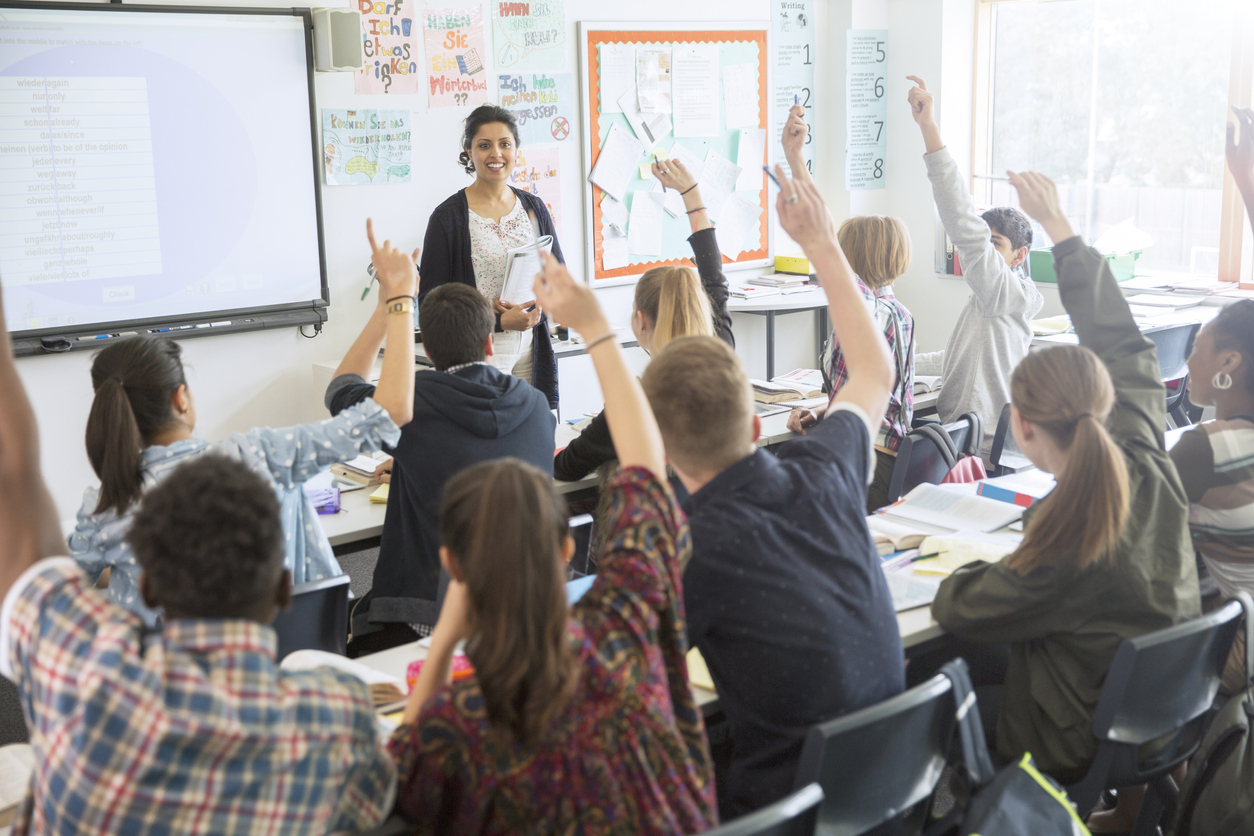Find the Best Primary Science Tuition Singapore for Enhanced Learning
Find the Best Primary Science Tuition Singapore for Enhanced Learning
Blog Article
Checking Out the Different Training Strategies in Main Science Education Today
The landscape of primary scientific research education is developing, with various training approaches gaining importance in contemporary classrooms. Inquiry-based learning, hands-on experiments, and the integration of technology are redefining just how instructors involve young minds. In addition, collaborative techniques and separated instruction are being employed to accommodate the diverse needs of trainees, improving both engagement and understanding. As we examine these methods, inquiries occur regarding their effectiveness and the ramifications for future instructional practices. What might these shifts in technique mean for the next generation of learners?
Inquiry-Based Learning
Inquiry-Based Discovering (IBL) is a pedagogical approach that urges students to discover scientific principles via questioning, investigation, and hands-on trial and error. This approach highlights the duty of pupils as energetic individuals in their understanding, advertising vital reasoning and analytic skills. By engaging with real-world questions, pupils become determined and interested, which boosts their understanding of scientific concepts.
In IBL, instructors serve as facilitators, leading students as they browse their questions as opposed to supplying info straight. This student-centered approach permits distinction, suiting numerous discovering rates and styles. Trainees create abilities in creating theories, making experiments, and evaluating data, which are vital for clinical literacy.
Additionally, IBL cultivates cooperation among trainees, encouraging them to share findings and concepts. This collective questions promotes social abilities and a feeling of neighborhood within the classroom. The process of query motivates resilience, as students learn to accept failure as a stepping rock toward understanding.
Hands-On Experiments
Hands-on experiments are a vital component of reliable scientific research education, complementing the principles of inquiry-based discovering. These experiments allow students to involve directly with clinical concepts, fostering a much deeper understanding via experiential learning. By manipulating materials and observing outcomes, young students can comprehend abstract concepts in substantial means.
Such activities advertise important thinking and analytical skills, as pupils assume results, conduct experiments, and evaluate outcomes. This process motivates them to ask inquiries, fine-tune their understanding, and create a clinical frame of mind. Additionally, hands-on experiments can be customized to varied knowing styles, ensuring that all trainees have the possibility to involve meaningfully with the content.
Additionally, hands-on experiments usually motivate collaboration among peers, advertising team effort and communication skills. Functioning in teams enables trainees to share ideas, talk about findings, and pick up from each other, which enhances their total educational experience.
Integrating hands-on experiments into the main science educational program not only improves the learning setting however likewise cultivates a long-lasting passion in scientific research. By proactively participating in their education, pupils are more probable to develop a passion for scientific inquiry that prolongs beyond the class.

Modern Technology Combination
Incorporating modern technology right into primary science education and learning has become progressively necessary in fostering student involvement and improving finding out outcomes. The usage of digital devices, such as interactive simulations, virtual laboratories, and academic software, offers students with possibilities to check out clinical concepts in innovative methods. These sources promote a deeper understanding of complicated topics by allowing students to imagine and adjust variables that would be not you could try these out practical in a traditional class setting.
Moreover, technology assimilation urges customized learning experiences. Trainees can progress at their own speed, taking another look at difficult principles through multimedia resources, which provide to various learning styles. This adaptability not just supports private growth but also grows a feeling of autonomy in learners.
Additionally, anchor innovation offers as a bridge to real-world science, linking pupils with current research study and professional payments. Access to on the internet databases and clinical journals widens students' perspectives on clinical query and cultivates essential thinking abilities.
Collaborative Knowing
Collaborative understanding plays an essential function in primary science education and learning by promoting synergy and interaction skills amongst trainees. This strategy encourages learners to interact, share knowledge, and take part in problem-solving, which boosts their understanding of scientific concepts. By participating in team tasks, pupils learn to articulate their ideas, listen to diverse perspectives, and work out services, every one of which are necessary abilities in both real-world and academic contexts.

Study shows that collaborative knowing can cause raised motivation and interaction in science topics, as pupils locate satisfaction in shared experiences (primary science tuition Singapore). Additionally, this approach prepares pupils for future collaborative ventures, outfitting them with the abilities needed for effective synergy in higher education and learning and specialist settings. Inevitably, embracing collaborative discovering in main scientific research education and learning can substantially improve the discovering experience and promote a deeper understanding of clinical query
Separated Guideline

Separated instruction can manifest in numerous means, such as varying the material, procedures, or products of understanding. For example, check these guys out educators might utilize tiered assignments that provide varying levels of intricacy, enabling pupils to function at their particular preparedness degrees. Furthermore, versatile organizing strategies can assist in collaboration among students with various abilities, promoting peer learning.
Evaluation plays a critical duty in this strategy, as it educates guideline and helps educators understand each student's unique requirements. Developmental assessments, such as monitorings and tests, can assist educators in adjusting their approaches to boost learning outcomes. primary science tuition Singapore. Ultimately, by implementing separated guideline in key science education and learning, instructors can cultivate a much more effective and fair discovering atmosphere, encouraging all students to reach their complete possibility in recognizing scientific sensations
Verdict
In recap, the diverse mentor approaches in key scientific research education, consisting of inquiry-based knowing, hands-on experiments, technology combination, joint discovering, and differentiated direction, collectively add to a much more effective learning setting. These techniques advertise essential thinking, analytic skills, and a much deeper understanding of scientific ideas. By executing these strategies, educators can create interesting and helpful classrooms that resolve the diverse demands of pupils, eventually cultivating a long-lasting passion in science and improving scholastic success.
Inquiry-Based Understanding (IBL) is a pedagogical method that encourages trainees to check out scientific principles with wondering about, investigation, and hands-on trial and error.Collective knowing plays a crucial function in main science education by fostering synergy and interaction skills amongst students.Research study suggests that collective learning can lead to raised inspiration and involvement in science topics, as trainees discover satisfaction in common experiences.In fostering a comprehensive discovering environment, distinguished instruction arises as a key approach to suit the varied needs and capacities of students in key science education and learning. Inevitably, by implementing distinguished direction in main scientific research education and learning, teachers can cultivate a more effective and equitable learning environment, empowering all students to reach their complete potential in comprehending clinical sensations.
Report this page